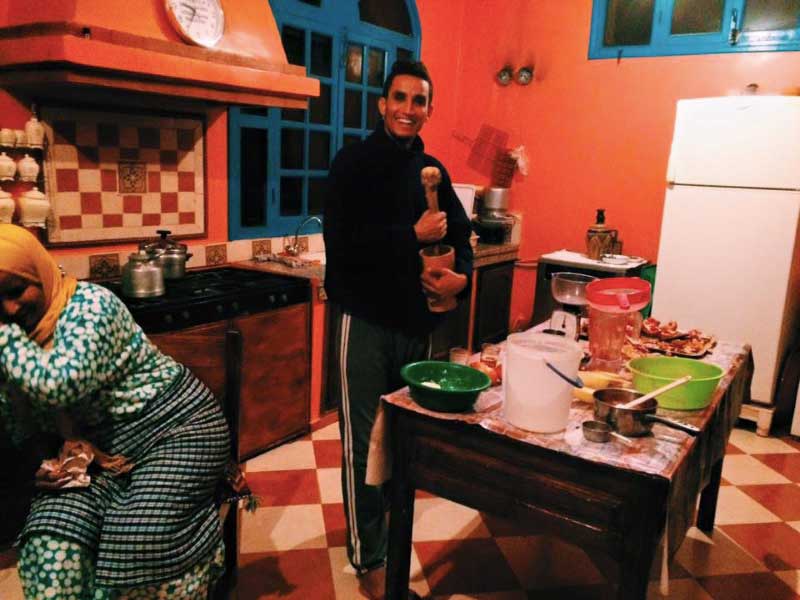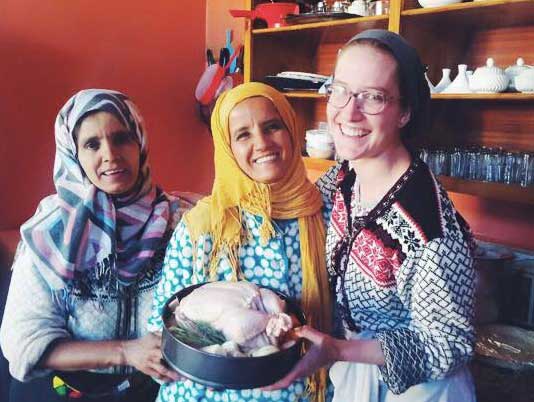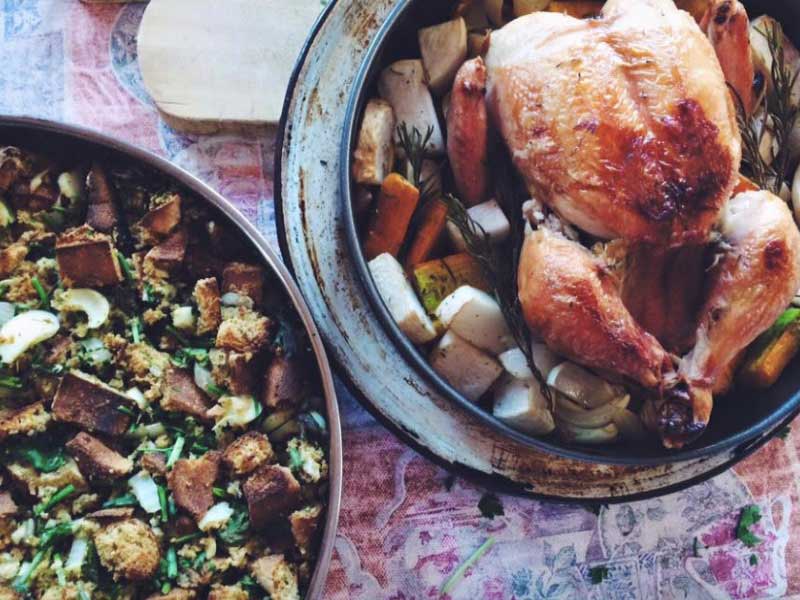
By Claudia Crook
Travel Writer27 Jul 2018 - 6 Minute Read
The headscarves wrapped across our faces would’ve been ample protection from Saharan winds. They prove no match, however, for the burning cloud of sugary dust Khadjia and I produce as we grind rock sugar to powder with a mortar and pestle, coughing violently and doubling over with laughter. A ridiculous task, yes; but it’s Thanksgiving and I must make a pumpkin pie.
I offered to cook for my Berber host family on my favorite American holiday as a parting gesture after a month-long stay at their bed and breakfast in Aoufous, a small village carved into the side of the canyon overlooking a date palm oasis in eastern Morocco’s Ziz Valley. But preparing a good, old-fashioned Moroccan Thanksgiving is not without challenges.
First, the very word proves difficult for my Arabic-speaking hosts to pronounce, so we adopt their best attempt: “Tahk-SNAH-ky”. Some ingredients must be substituted: sour pomegranates in lieu of cranberries, khobz for cornbread in the stuffing.
Earlier today, Khadija’s son, Saïd, helped me navigate the maze-like souks, deftly charming allspice from the spice vendor’s baskets and assuring me that green Kabocha squash will pass for pumpkin. We also picked up the holiday bird: a live hen, which the butcher slaughtered for us on the spot. I forgot, however, that only solid blocks of sugar, which melt so easily into steaming pots of mint tea, were on hand in the kitchen. So, we grind.



As we labor and laugh, I’m moved by Khadjia’s dedication. She doesn’t know about the Pilgrims, or care about pumpkin pie; she just knows it’s important to me and wants to help.
When we finally sit down to feast, I can’t help but reflect on the significance of the holiday and my time in Morocco. Living in a predominantly Muslim country during the 2016 US presidential election had been sobering. Even here, election coverage was ubiquitous, and my hosts shared in my excited anticipation of a female leader, then comforted me as I wept on November 9th. The Ilahiane family’s embrace of me, and Tahksnahky, stings with irony (which the soon-to-follow travel ban would only heighten: in my country, millions who look like my hosts would be barred from entry, while in Aoufous, I arrived a stranger and was received like one of the family).
But the table is full of food, and Khadija is eyeing the curious Western sweet we toiled over. I smile as I cut the first slice, filled with gratitude that after such a labor of love we can sit down together and share a piece of the pie.
This story was a winning entry in the 2018 World Nomads Travel Writing Scholarship.
Discover similar stories in
connection
Travel Writer
Claudia is lifelong traveler and writer, combining the two first in a high school travel blog during an internship in London, then most recently in Argentina as a winner of the 2018 World Nomads Travel Writing Scholarship.


No Comments